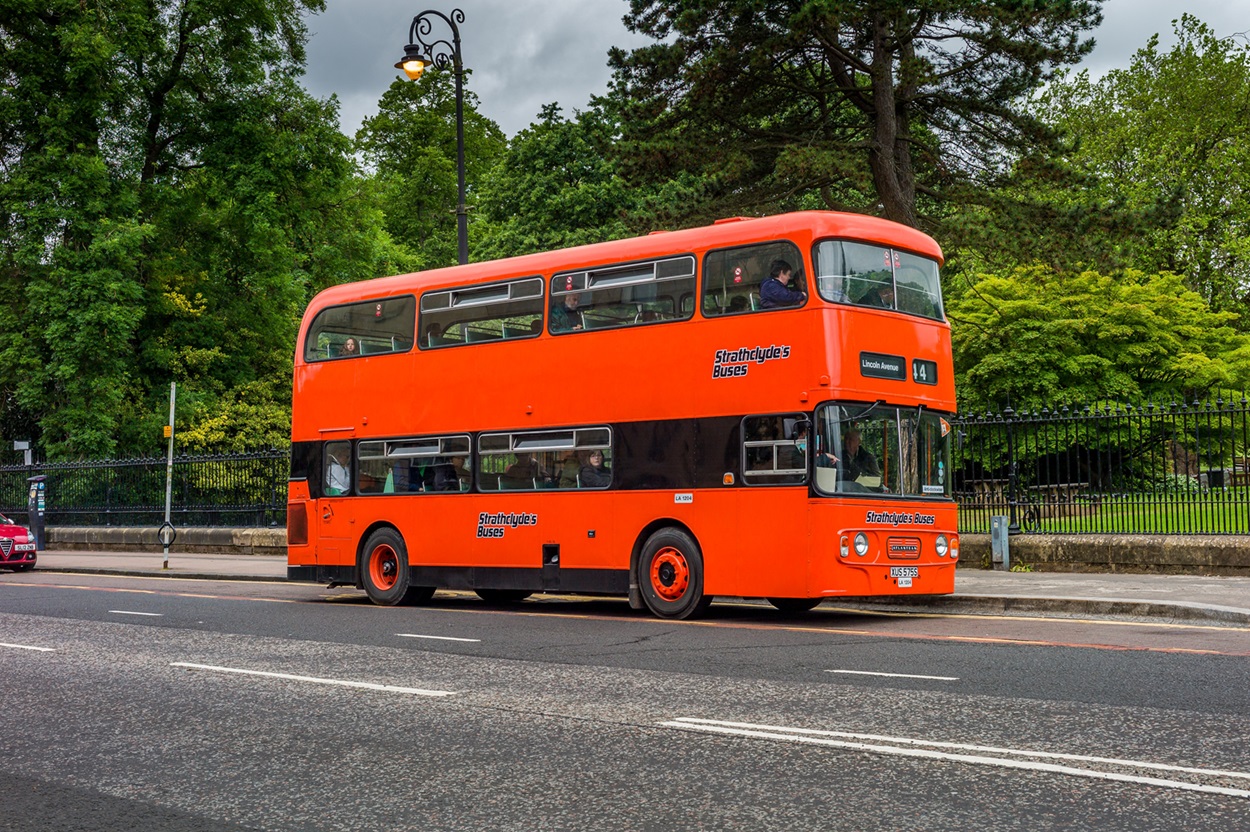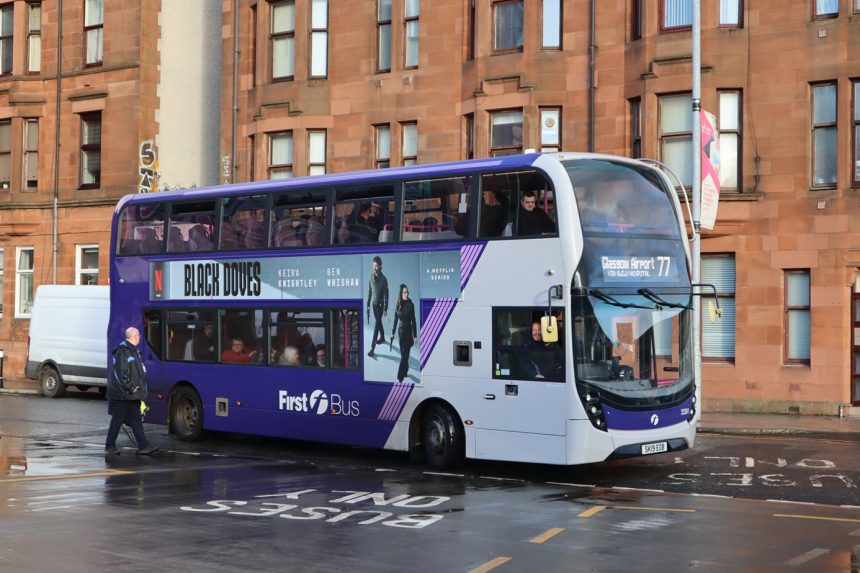The question of funding for bus franchising in the Glasgow city region remains unclear after a draft Strathclyde Regional Bus Strategy from Strathclyde Partnership for Transport (SPT) noted how its affordability is “uncertain” given wider stress on public finances in Scotland.
That document adds how a future franchising scheme would need “sizeable” public financial backing “at least in the short-term” for SPT to assume operational control, support the bus network, and make required investments to deliver improvements.
Contents of the Strategy have drawn further scorn from McGill’s Group, which is a vehement critic of the reregulation proposals. It says that they would represent “an outright seizure of privately-run businesses” and that SPT vastly underestimates the cost of what McGill’s Chairman Ralph Roberts calls a “politically motivated quest for franchising.”
The operator has reaffirmed its plans for “any legal action that may be necessary” against franchising. Owners James and Sandy Easdale have already spent “substantial funds” on legal specialists to scrutinise SPT’s proposals. “We have now got long-term plans in place on how to respond should SPT continue down this ill-thought-out road,” says Mr Roberts.
SPT believes that reregulation could even be delivered on a self-funded basis through existing farebox and other revenue streams, but that approach would be unlikely to deliver any improvements. The body thus wants changes from the Scottish Government to support its favoured avenue for bus reform.
Among those are a return of the Bus Partnership Fund (BPF) or “a revised replacement.” The BPF was earlier suspended in controversial fashion, and Holyrood recently acknowledged that it will not return.
Instead, a new Bus Infrastructure Fund will handle spend on priority measures. SPT’s Strategy notes that significant investment there will be necessary for a successful franchised network to be delivered.

SPT also wants reform of the Network Support Grant (NSG), along with access to bus decarbonisation funding and change to concessionary fare reimbursement. Ministers previously says that the second round of the Scottish Zero Emission Bus grant scheme concluded Scottish Government support for the purchase of zero-emission buses.
While those asks are ambitious, SPT adds that others will be needed to deliver “a more ambitious level of change” to bus services in Strathclyde.
Devolution of funding for concessionary travel, NSG and capital work is among those calls, along with a multi-year financial commitment from the Scottish Government to bus services in the SPT area. New revenue streams are also floated. Those could include workplace parking licensing, a regional precept, and municipal borrowing or financial support.
The draft document will go before the SPT Strategy and Programmes Committee on 21 February with a recommendation to progress to public consultation.
Included is SPT’s existing claim that a “regional franchise of a transformational nature” will require between £45 million and £85 million of additional revenue funding per year to sustain, although final totals are unknown until the scale is agreed.
McGill’s has again questioned those figures. It believes that such an approach would cost £400 million annually. Mr Roberts says that sits uneasily with public sector financial pressures in Scotland. He adds that partnership could deliver improved services if action was taken to reduce congestion and add priority measures.

Mr Roberts also states that bus franchising would see SPT “confiscate an expensive private business and then put it up for public auction to the highest bidder,” although he notes that the operator has “no ideological or dogmatic position against franchising per se.”
The McGill’s Chairman adds that “the honourable thing” to do in pursuit of public control would be for SPT to buy bus operators in the Strathclyde region.
“We will not stand in its way if it believes it can deliver better bus services for the population and wants to purchase existing operators in commercially sound agreements – but it cannot steal a private business as it proposes currently,” he continues.
Franchising guidance is yet to be published by the Scottish Government. SPT notes that its indicative rollout programme may thus be subject to change. However, it estimates that completion of implementation could be as far away as five-and-a-half years, depending on the scale and complexity of any model adopted.
Draft Strathclyde Regional Bus Strategy available here.



























